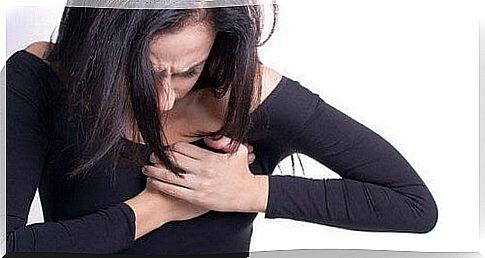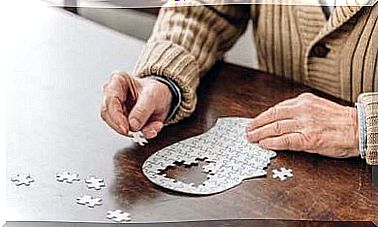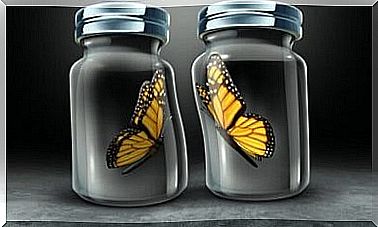Exercise And Stress: What Is The Relationship?

Which of the activities you practice are good for your health and make you feel better about yourself? If exercise is the answer, you are on the right track. People who do not exercise tend to underestimate the benefits. Exercise and stress are inversely related.
Broadly speaking, sport is an effective and healthy way to combat stress. By exercising regularly, we feel less stressed.
The body that does not move is a dead body. A child who is listless and without energy is hardly considered healthy. Lack of movement renders the body unable to cope with extreme situations. Conversely, it promotes slow metabolism, low energy, a tendency to overeat and drug abuse.

The effects of stress
Excessive stress can weaken your health. When we are under stress for a long time, a series of negative reactions are triggered in our body, caused by certain hormones such as cortisol.
Stress also reduces our energy level, so we tire more easily and this opens the way for absenteeism in the workplace and neglect of tasks and activities. The personal cost of all this is enormous. Stress has been related to a great deal of ailments : heart problems, gastrointestinal disorders, psychological disorders, breathing difficulties, immunological disorders, etc.
For example, the consequences of chronic stress on the cardiovascular system occur in several ways. The thin inner lining of blood vessels can tear and puncture.
If the stress becomes chronic, it can create serious disturbances; eg hypertension, heart disease, tachycardia, occasional cardiac arrhythmia, aneurysms, embolisms. All this only at the cardiovascular level.
It is clear that we must adopt sound strategies to cope with stress. Well, exercise is an excellent strategy to combat the negative effects of stress.

Doing aerobic exercise improves health
Exercise is a more or less vigorous activity that requires large amounts of oxygen. In order for it to be good for the cardiovascular system, i.e. the heart and blood vessels, it is necessary to carry out aerobic activities. The workout should be at a brisk pace and last at least 20 minutes.
Aerobic exercise takes a lot of energy, but it doesn’t overload the heart too much. The latter is in charge of bringing adequate amounts of blood and oxygen to the muscles. Aerobic activity favors this process, in fact “aerobic” means air.
The more strenuous the exercise, the faster the heart rate accelerates. If we put extreme fatigue on the muscles, the heart will no longer be able to provide enough oxygen. At this point, you will not enjoy enough oxygen and it will be difficult to maintain the same level of activity.
Sport: effective method of active relaxation
There are two types of relaxation: active relaxation and passive relaxation.
Passive relaxation is practiced through various exercises. Some of these are diaphragmatic breathing, progressive muscle relaxation, meditation, etc.
Active relaxation can also be achieved in various ways. Running, jogging, walking, cycling, swimming, dancing, etc. In other words, through physical exercise.
Active relaxation works best when it doesn’t involve competition, otherwise it could become a source of stress. There is a big difference between jogging and competing in the 100 meters.

Exercise and stress
As we said, exercise and stress have a profound relationship. If we often do moderate-intensity sports, we will keep stress levels under control.
Regular physical activity will help us physically and mentally. We will burn calories which, in turn, will slow down aging. According to some research, the improvements we experience through exercise are numerous. Let’s analyze some of them below.
You sleep better
With a moderate amount of exercise we will reduce adrenaline and noradrenaline levels. This will allow us to fall asleep faster. In addition, it will promote a better rest.
Low cortisol levels have also been associated with better sleep quality. Moderate exercise will also reduce the levels of this hormone.
Lower risk of heart attacks
Many people burn fewer than 2000 calories per week. This translates into a 64% higher chance of having a heart attack. Let’s not forget that stress is a cardiovascular risk factor, as is being overweight.

Better physical fitness will allow us to consume more oxygen during physical activity. Your resting heart rate will be lower and there will be less lactic acid production. In addition, there will be a maximum increase in yield capacity.
The more exercise we are able to practice, the lower the triglyceride levels will be. We will balance high-density lipoproteins and low-density lipoproteins, or the much feared bad cholesterol, by increasing the formation of atherosclerotic plaques.
Better ability to deal with the causes of stress
Research indicates that increased oxygen flow to the brain increases the availability of glucose, which improves brain functioning. This will allow us to feel less stressed. The levels of catecholamines are reduced thanks to sport and we stabilize the mood swings. Ultimately, we will prevent the feeling of anguish and sadness.
As we have seen, exercise and stress are closely related. Better physical fitness helps to cope with stress, as it makes us stronger physically and mentally. Therefore, it creates a feeling of greater control towards all causes of nervousness.









